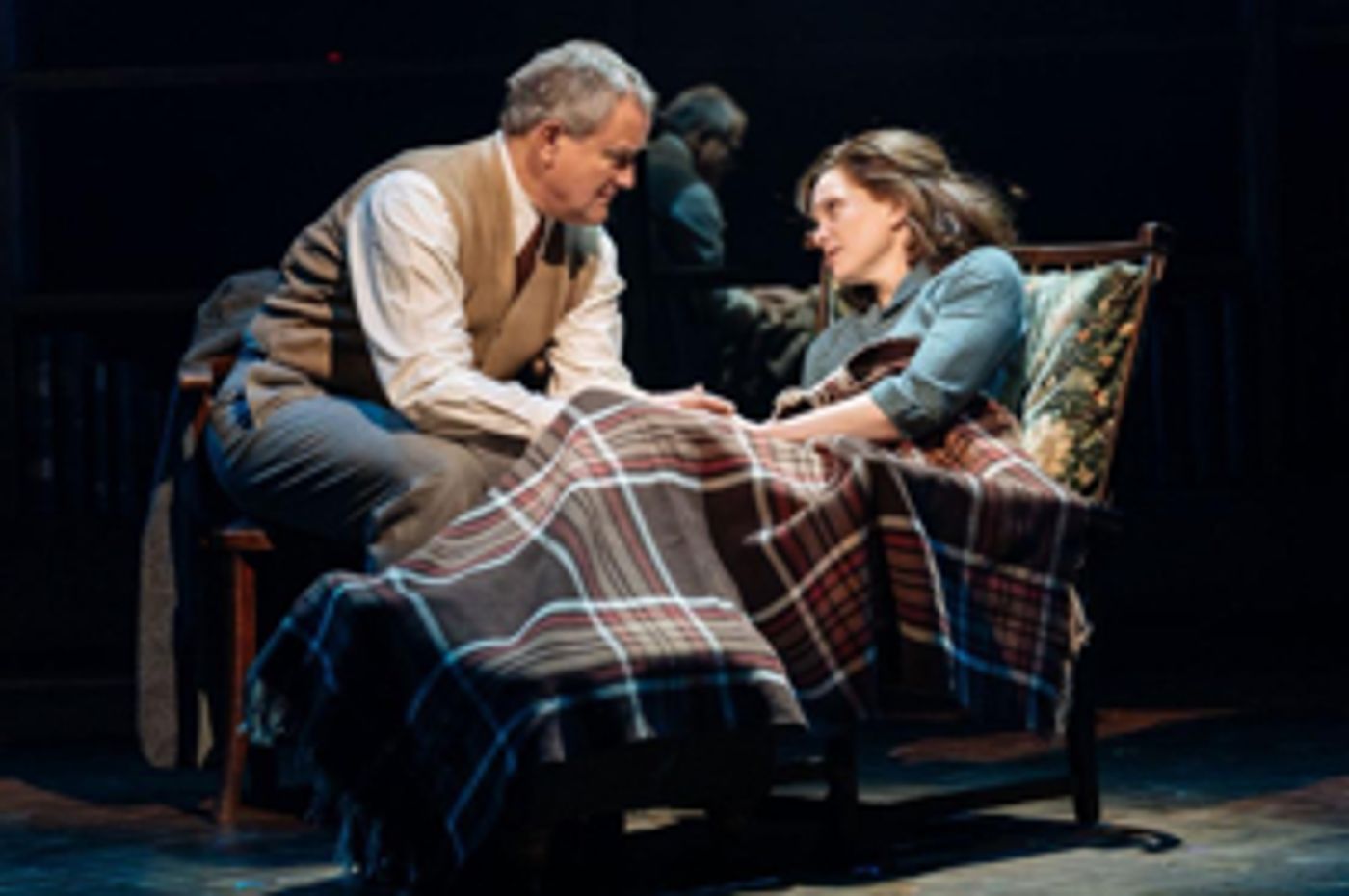Review: SHADOWLANDS, Chichester Festival Theatre

![]() Experience is a brutal teacher.
Experience is a brutal teacher.
CS Lewis, celebrated author, Oxford don, committed Christian, stands before his students and lectures on love and suffering. He knows of that which he speaks, having lost his mother to cancer when he was just nine years old. Only through suffering do we understand God's love. Yeah... right.
But does he really know? Like many men of his time, he constructed a carapace of denial to protect him from confronting the damage such trauma caused, leaving him in a state of arrested development - an intellectual giant, an emotional pygmy.
Whirling into his life of constructed certainty, at first through letters, then in person, comes Joy Davidman Gresham - as whip smart and feisty as (perhaps) only a person growing up Jewish in New York could be. For want of a better word, they click, the self effacing alpha male and the Yankee divorcee. She loves him, but he doesn't know what love is, so he just thinks about her - a lot.
And then Experience barges in and she finds her man, as his faith is shaken to its core.
William Nicholson's award-winning play is nearly 30 years old now and men, British men, are different, living in a culture in which emotional intelligence is much more recognised than it was in the 50s (when the play is set) or when audiences first saw it in the West End and on Broadway.
But if the theme feels a little outdated, the clout of the drama is undiminished - the personal tragedy, the pull of duty, the response to the sweet dull ache of love. It's not quite a period piece yet.
Much depends on the actors playing Jack (Lewis's nickname) and Joy, because were they to slip a little 21st century knowingness into the 20th century earnestness, the drama would wobble as much as Jack's faith and we'd be left with an unusually witty and erudite soap opera storyline - drama curdled to melodrama.
Hugh Bonneville (who studied theology at Cambridge) could hardly be more suited to the role. He captures Jack's decency, his casual acceptance of top dog status amongst the Oxford men (only men) and his layer upon layer of fragility. You know why he doesn't do what he should do for so long.
Liz White is tremendous as Joy, skewering the dons when they patronise her, timing her lines (she gets the best of them - New Yorkers usually do) perfectly and giving us a woman with needs (and occasionally a needy woman) but one who is entirely her own self. It would have been easy to overdo the schmaltz or caricature the American get-up-and-go spirit (especially with the hospital bed one-liners), but we believe in her and, crucially, we feel her suffering, physical and romantic.
Maybe I, like Timothy Watson's acid tongued Professor Riley, am too much of an atheist to appreciate fully the crisis of faith Jack undergoes (and, returning to the Narnia books as an adult, their heavy-handedness made them unreadable, so I know he did not do things by half). That's part of the play to which my access was limited - as I suspect may be the case for many. I wondered on the way home if Christopher Hitchens ever saw the play and what he made of it.
Roll in the soapy dramatic arc and it's a recipe for a dish I should find unpalatable - but I didn't. Jack and Joy are too likeable, their flaws too understandable, their tragedy too tangible for any cynicism to take hold.
And if a play can excise that most destructive of attitudes from our hearts, its work is done.
Shadowlands continues at Chichester Festival Theatre until 25 May.
Photo Manuel Harlan
Reader Reviews
Videos

